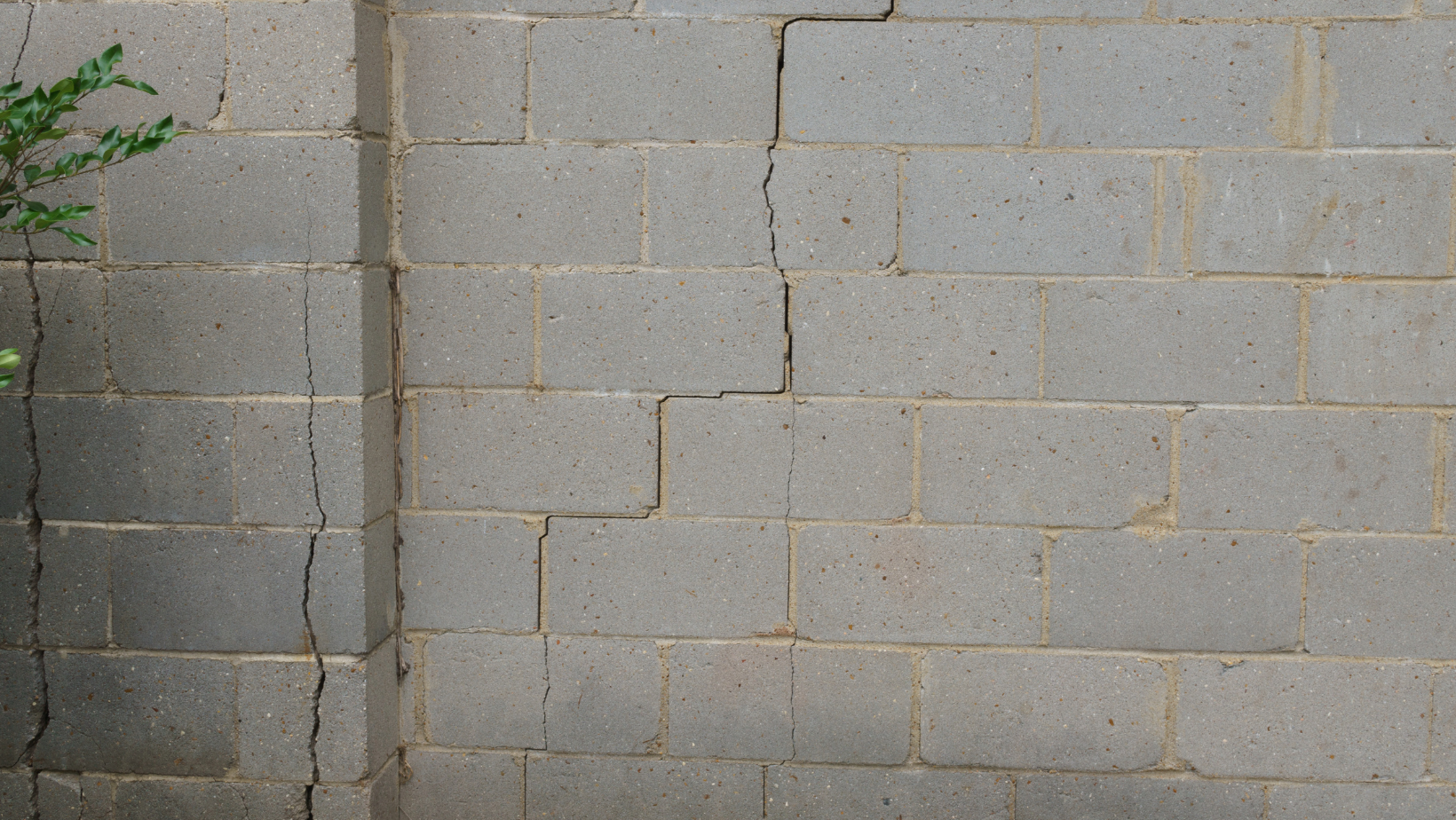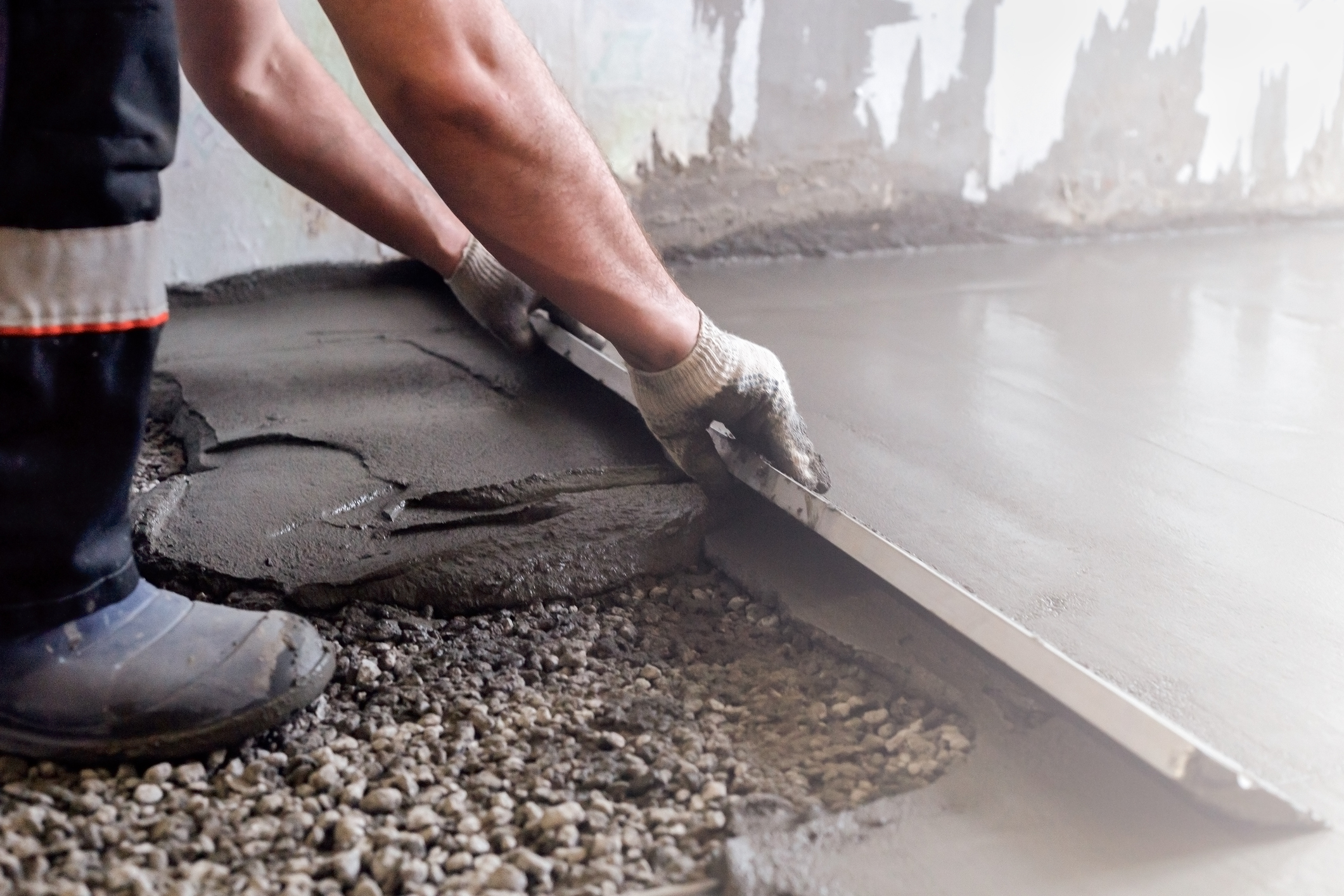
Regular Maintenance on Your Foundation
You may wonder if there are any crucial maintenance tasks you should be doing for your home’s foundation. You will be happy to know that many of the tasks that are beneficial to your foundation are ones you’re already doing as part of regular home maintenance.
Keep it Dry…But Not Too Dry
Keeping your foundation dry is the top priority for any homeowner. Clean out your gutters on a regular basis and make sure they are all pointed away from your home. Check for areas of pooling and ensure proper grading in your yard. Additional drainage solutions may need to be considered if you continually have a problem with water at the foundation.
Keep Trees Away
You may have heard that planting trees and shrubs near the foundation helps with drainage and can even guard against foundation problems, which is true. Just be sure to keep large trees away from your home, as their massive spreading roots can result in serious issues. Any small trees and shrubs you do have near the foundation should be kept at shorter than three feet.
Keep an Eye on Cracks
Most cracks are harmless, but the problem happens when they change in size. If you notice a crack that gotten bigger or wider since the last time you looked, call a professional, as this can be an indication of serious foundation problems that will need to be addressed sooner rather than later.
Inspect Your Foundation Regularly
Twice a year, take the time to walk around your home and check out the foundation and walls. Look for large cracks, buckling walls, sagging roofs and improperly fitted window frames. When you catch these small issues quickly, you can save yourself a lot of expense and hassle later on.
Common Indoor and Outdoor Foundation Warning Signs
Let’s take a look at these common indoor and outdoor warning signs.
Indoors
It’s not surprising that many homes settle over time. Generally, this is common and not a reason for concern. However, if you start noticing these warning signs in your home’s interior, get them checked out because they could translate to foundation damage:
- Sticking doors
- Hard-to-open-and-close windows
- Wall cracks over windows, doorways, or between walls and ceilings
- Cracks in your concrete floors
You may not even think the above problems could be symptoms of foundation problems, but they certainly can be. Don’t chalk them up to the age of the house or time. Call a pro immediately.
Outdoors
As a homeowner, you should regularly inspect the outside of your home for signs of foundation issues. To determine if your foundation is straight, measure how long the foundation wall is from each corner. Use a level to see if you have leaning or bowing walls. Keep in mind, bulging concrete walls tend to shift when pressure is applied against the foundation walls, primarily due to soil expansion and contracting.
- Crumbling or Breaking Concrete: Check the stability of your poured perimeter foundation by giving it a few pokes with a screwdriver. If you see chipping or flaking, the foundation is deteriorating.
- Rotting Wood Posts: Are the concrete supports and posts in your basement standing straight up and resting firmly underneath the beams? If not, keep in mind moisture can damage these quite easily, causing them to lean and sag.
- Moisture in the Crawlspace: If you see puddles or standing water in your crawlspace, this is a sign of poor drainage, resulting in moisture, mold growth, and foundation settlement. Go outside and ensure your gutters are free from debris and are aimed away from the home.
- Foundation Cracks: It’s common for cracks to form in foundations. If you see hairline cracks and cracks at an L-shaped section, you don’t have to be overly concerned. If you notice these types of cracks, they’re generally more serious:
Horizontal: These are caused by pressure against the foundation from soil expansion and soil shrinkage.
Stair-step cracks: These are cracks that are wider than a quarter inch, coupled with a bulging wall.
Foundation Repairs We Offer at Aftermath Repair
We know how important it is to help our customers navigate through the process of diagnosing the problem, identifying the cause, and creating the right repair solution that makes sense for everyone.
Foundation Repair
Not all problems can be fixed with one solution. It is important to fully understand and diagnose the problem so that the correct solution can be applied. For instance, is the structure settling on the interior only? These are the important questions we answer in our initial analysis.
Under Slab Plumbing Repair
Leaks can cause major damage to your home and yard, especially slab leaks. Learn more about slab leaks and how to perform a slab plumbing repair. A slab leak occurs when a pipe running below the concrete foundation of your house breaks, causing water to leak and potentially damaging the foundation and home.
Root Barrier
Tree roots are something that many people do not think about, but they can cause a lot of problems for a home if left uncontrolled. These roots can easily grow under foundations and into pipes and sewer lines, damaging the material and causing blockages.
Under Slab Leak Detection
Most customers are unaware that a plumbing leak even exists. Even if you do not have a foundation problem, you should test for plumbing and sewer line leaks. Over time, leaking and broken sewer lines can cause significant home foundation repair problems.
Concrete Lifting, Raising & Leveling
There are a variety of concrete structures that can be lifted. Some examples include concrete driveways, patios, rights of way, barbecue areas, basketball courts, stairs, sidewalks, pathways, slabs, roads and building foundations. There are a variety of means of lifting that will correct serious issues with these structures.
Contact Aftermath Structural Repair
Aftermath Structural Repair is the one to call when you need foundation maintenance or repair services in Houston TX. For an appointment,
contact us at 281-231-8904.




